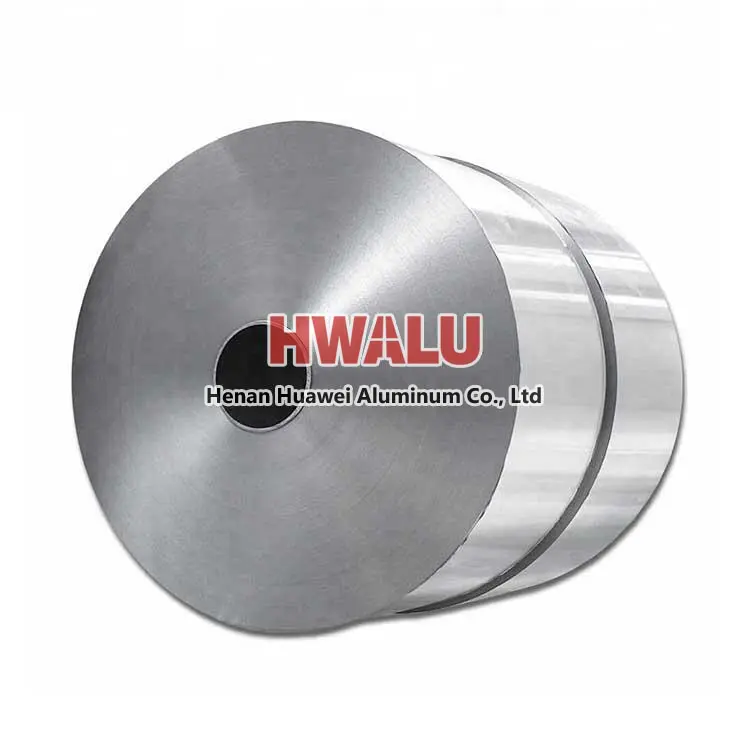Single zero aluminum foil refers to aluminum foil with a thickness between 0.01mm ( 10 micron ) and 0.1mm ( 100 micron ). 0.01mm ( 10 micron ), 0.011mm ( 11 micron ), 0.012mm ( 12 micron ), 0.13mm ( 13 micron ), 0.14mm ( 14 micron ), 0.15mm ( 15 micron ), 0.16mm ( 16 micron ), 0.17mm ( 17 micron ), 0.18mm ( 18 micron ), 0.19mm ( 19 micron ) 0.02mm ( 20 micron ), 0.021mm ( 21 micron ), 0.022mm ( 22 micron ...
What is aluminum foil for baking? Aluminum foil for baking is a type of aluminum foil that is commonly used in cooking and baking to wrap, cover, or line various types of food items. It is made from a thin sheet of aluminum that is rolled out and then processed through a series of rollers to achieve the desired thickness and strength. Aluminum foil for baking is typically designed to be non-stick and heat-res ...
What is medicinal aluminum foil Pharmaceutical aluminum foil is generally a thinner aluminum foil, and its thickness is usually between 0.02mm and 0.03mm. The main feature of pharmaceutical aluminum foil is that it has good oxygen barrier, moisture-proof, protection and fresh-keeping properties, which can effectively protect the quality and safety of medicines. In addition, pharmaceutical aluminum foil also h ...
Why does hair use aluminum foil? The use of aluminum foil for hair is often done during hair coloring, especially when a specific pattern or effect is desired. Aluminum foil can help isolate and hold the hair dye in place, ensuring it only goes where it's needed, creating a more precise and detailed finish. When coloring hair, hairdressers usually divide the hair to be colored into sections and wrap each sect ...
What is aluminum foil for inner tank Aluminum foil for inner tank refers to a method of making inner tank, that is, aluminum foil material is used when making inner tank. A liner refers to a container, usually used for storing or cooking food. Aluminum foil is a thin, malleable metallic material made of aluminum alloy that is often used in food packaging and cooking utensils. The advantage of using aluminum f ...
Black Gold Aluminum foil Black Gold Aluminum foil refers to aluminum foil with black or gold spray coating on the surface, and also has one side of gold and one side of very colored aluminum foil. Black aluminum foil is mostly used in aluminum foil tape, air duct materials, etc. Gold aluminum foil is widely used and is often used in chocolate packaging, pharmaceutical packaging, aluminum foil lunch box ...
The first step, smelting A large capacity regenerative melting furnace is used to convert the primary aluminum into aluminum liquid, and the liquid enters the casting and rolling machine through the flow groove. During the flow of the liquid aluminum, the refiner Al-Ti-B is added online to form a continuous and uniform refining effect. The graphite rotor degassing and slagging on line at 730-735°C, forming a con ...
The development of new energy vehicles is an important part of the low-carbon economy, and plays an important role in alleviating the contradiction between energy supply and demand, improving the environment, and promoting sustainable economic development. New energy vehicles are one of the industries that best reflect a country's technological development level, independent innovation capabilities and internatio ...
Aluminum foil has good moisture-proof properties. Although pinholes will inevitably appear when the thickness of the aluminum foil is less than 0.025mm, when observed against light, the moisture-proof properties of aluminum foil with pinholes are much stronger than those of plastic films without pinholes. This is because the polymer chains of plastics are widely spaced apart from each other and cannot prevent wat ...
Cast-rolled aluminum foil production process Aluminum liquid, aluminum ingot -> Smelt -> Continuous roll casting -> Winding -> Cast roll finished product Plain foil production process Plain foil -> Cast-rolled coil -> Cold rolled -> Foil rolling -> Slitting -> Annealing -> Plain foil finished product The manufacture of aluminum foil is similar to making pasta at home. A large b ...
Aluminum foil is generally considered safe to use for cooking, wrapping, and storing food. It is made from aluminum, which is a naturally occurring element and is one of the most abundant metals on Earth. Aluminum foil is approved by regulatory agencies, such as the U.S. Food and Drug Administration (FDA), for use in food packaging and cooking. However, there are some concerns about the potential health risks ...
Household foil is widely used in cooking, freezing, preservation, baking and other industries. The disposable aluminum foil paper has the advantages of convenient use, safety, sanitation, no odor and no leakage. In the refrigerator or freezer, aluminum foil can be directly wrapped on the food, which can keep the food from deformation, avoid the water loss of fish, vegetables, fruits and dishes, and prevent the le ...









